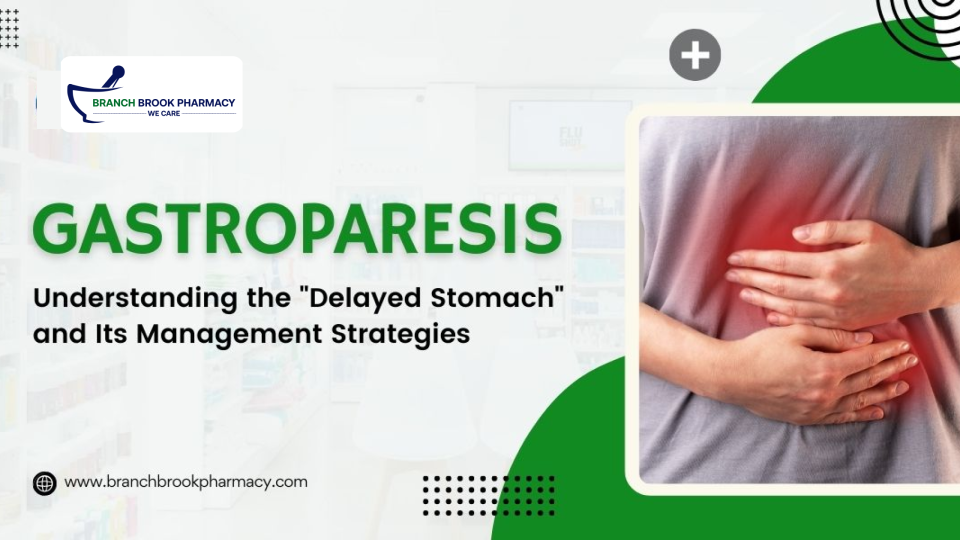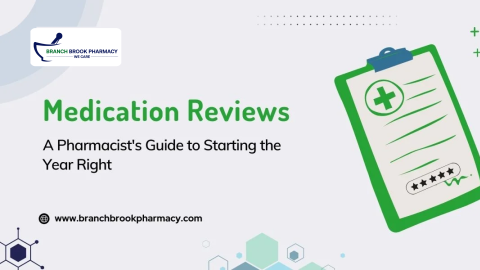
Gastroparesis, often referred to as the “delayed stomach,” is a chronic condition characterized by delayed emptying of the stomach contents into the small intestine. This disorder can lead to a range of symptoms, including nausea, vomiting, bloating, and abdominal discomfort. Understanding gastroparesis and its management strategies is crucial for patients and healthcare providers alike. Here, we explore the intricacies of gastroparesis and discuss effective management strategies.
According to the American College of Gastroenterology (ACG), gastroparesis (GP) is commonly referred to as “stomach paralysis.” It is a chronic neuromuscular disorder affecting the upper gastrointestinal (GI) tract, characterized by delayed gastric emptying leading to reduced stomach motility in the absence of any physical obstruction.
The condition’s etiology is multifaceted, primarily classified into three categories: idiopathic, diabetic, and postsurgical.
Here’s a more detailed breakdown
Here’s a tabular representation of agents that can impair gastric emptying and exacerbate Gastroparesis (GP):
| Agents | Effect on Gastric Emptying |
| Alcohol | Slows down gastric emptying |
| Nicotine | Delays gastric emptying and may worsen symptoms |
| Anticholinergics | Inhibits gastric motility and can worsen GP symptoms |
| Opioid analgesics | Slows gastrointestinal transit and exacerbates GP |
| Calcium channel blockers | May impair gastric emptying and contribute to GP symptoms |
| Progesterone | Can delay gastric emptying and worsen GP symptoms |
| Clonidine | Impairs gastric motility and exacerbates GP symptoms |
| Proton pump inhibitors | May affect gastric emptying and exacerbate GP |
| Dopamine agonists | Can delay gastric emptying and worsen GP symptoms |
| Tricyclic antidepressants | Can slow down gastric emptying and exacerbate GP symptoms |
Understanding Gastroparesis (GP)
- Definition: Gastroparesis (GP) is a chronic disorder affecting the upper gastrointestinal (GI) tract, characterized by delayed gastric emptying.
- Etiology: The causes of GP are diverse, with the main classifications being idiopathic, diabetic, and postsurgical.
- Incidence: Although the exact incidence of GP is not well documented, it is estimated that between 4 to 5 million individuals in the United States are affected by the condition to varying degrees.
Factors Contributing to GP Hospitalizations
- Increased Prevalence of Diabetes: The rising prevalence of diabetes may contribute to the increasing incidence of GP.
- Changes in Diagnostic Criteria: Alterations in GP diagnostic criteria, severity assessment, and treatment strategies over the years may have led to improved recognition and diagnosis of the disorder.
- Better Recognition and Diagnosis: Improved awareness and recognition of GP within the medical community may have contributed to increased hospitalizations.
Impact on Morbidity and Mortality
- Association with Morbidity: Some case series suggest a correlation between GP and increased rates of morbidity, indicating the potential severity of the condition.
- Risk of Mortality: In addition to morbidity, there is also an association between GP and increased mortality rates, highlighting the importance of timely diagnosis and management.
Overall, the increasing prevalence of diabetes, changes in GP diagnostic criteria, and better recognition of the disorder may contribute to the upsurge in GP-related hospitalizations observed in recent years. Understanding the multifactorial nature of GP and its potential implications for morbidity and mortality underscores the importance of early diagnosis and appropriate management strategies.
Did You Know?
- According to the National Institute of Diabetes and Digestive and Kidney Diseases (NIDDK), approximately 5 million Americans are affected by gastroparesis.
- Gastroparesis is more common in women than in men.
Diagnosis and Treatment Options
Diagnosis of Gastroparesis
Did You Know? According to the National Institute of Diabetes and Digestive and Kidney Diseases (NIDDK), an estimated 1.5 million Americans are affected by gastroparesis.
Diagnosing gastroparesis requires a thorough evaluation, including a medical history assessment, physical examination, and diagnostic tests. Gastric emptying studies, where the patient consumes a meal containing a radioactive tracer and undergoes imaging to track the passage of food through the digestive system, are commonly used to confirm the diagnosis.
Additionally, upper endoscopy may be performed to rule out other gastrointestinal conditions.
Treatment Options for Gastroparesis
Once diagnosed, the management of gastroparesis focuses on alleviating symptoms and improving gastric emptying. Treatment options may include:
- Dietary Modifications: Adopting a low-fiber, low-fat diet and consuming smaller, more frequent meals can help ease symptoms and facilitate digestion. Avoiding foods that are difficult to digest, such as fibrous vegetables and fatty foods, can reduce the burden on the digestive system.
- Medications: Prokinetic agents, such as metoclopramide and domperidone, are commonly prescribed to enhance stomach motility and improve gastric emptying. These medications work by stimulating the muscles of the digestive tract, promoting the movement of food through the stomach and intestines.
- Botulinum Toxin Injection: In cases where other treatments have failed to provide relief, injecting botulinum toxin into the pyloric sphincter, the muscle that controls the passage of food from the stomach to the small intestine, may be considered. This procedure aims to relax the sphincter muscle, facilitating the emptying of the stomach contents.
- Electrical Stimulation Therapy: Gastric electrical stimulation therapy involves implanting a device, similar to a pacemaker, that delivers electrical pulses to the muscles of the stomach. These electrical impulses help regulate gastric motility and may improve symptoms such as nausea, vomiting, and abdominal pain.
Management Strategies for Gastroparesis
Living with gastroparesis isn’t just about managing symptoms; it’s about embracing a lifestyle that supports your well-being. Here’s a comprehensive guide to making lifestyle changes that can help you navigate the challenges of gastroparesis with confidence and resilience.
1. Dietary Changes
What you eat and how you eat it can significantly impact your experience with gastroparesis. Here are some dietary adjustments to consider:
| Dietary Tips | Benefits |
| Eat small, frequent meals instead of large portions. | Helps prevent overloading the stomach, reducing discomfort and bloating |
| Include protein-rich foods to aid digestion and stabilize blood sugar levels. | Supports sustained energy and balanced blood sugar throughout the day. |
| Stay hydrated by drinking plenty of water and clear fluids like broth. | Prevents dehydration and helps soften stools, easing digestion. |
| Limit or avoid caffeine and alcohol, as they can irritate the stomach lining. | Reduces the risk of exacerbating gastroparesis symptoms. |
| Sit upright for meals and remain upright for 30-60 minutes after eating. | Facilitates proper digestion and minimizes reflux symptoms. |
| Chew food thoroughly and break down foods into small, easily digestible pieces. | Enhances digestion and reduces the strain on the digestive system. |
2. Managing Stress
Stress and anxiety can worsen gastroparesis symptoms, so it’s essential to find effective stress management techniques:
| Stress Management Strategies | Benefits |
| Practice mindfulness exercises such as meditation, deep breathing, or yoga. | Promotes relaxation and calms the nervous system, easing digestive distress. |
| Prioritize getting 7 to 8 hours of sleep each night to allow your body and mind to rest. | Supports overall well-being and reduces the impact of stress on digestion. |
| Engage in light exercise like walking or pursue enjoyable hobbies. | Releases endorphins, the body’s natural mood elevators and pain relievers. |
Remember, finding the right combination of lifestyle changes may require some trial and error. Stay patient and be open to adapting your routine as needed. With perseverance and a proactive approach, even small changes can lead to significant improvements in managing your gastroparesis symptoms.
BranchBrook Pharmacy: Your Partner in Gastroparesis Management

At Branch Brook Pharmacy, we understand the challenges faced by individuals living with gastroparesis. Our experienced pharmacists are committed to providing personalized care and support to help manage symptoms effectively. With a comprehensive range of medications and supplies tailored to gastroparesis management, we strive to empower patients to lead healthier, more comfortable lives.
Why Choose BranchBrook Pharmacy?
- Expertise – Our team of pharmacists specializes in gastrointestinal disorders and is dedicated to providing expert guidance and support.
- Convenience – With our user-friendly online platform, patients can conveniently order medications and supplies from the comfort of their homes.
- Personalized Care – We believe in the power of personalized care and take the time to understand each patient’s unique needs and preferences.
- Quality Assurance – At BranchBrook Pharmacy, we adhere to the highest standards of quality and safety, ensuring that patients receive medications of the highest quality.
Conclusion

Gastroparesis can significantly impact quality of life, but with proper management and support, individuals can effectively control symptoms and improve overall well-being. By understanding the underlying causes, diagnosis, and treatment options for gastroparesis, patients can take proactive steps towards better symptom management. At BranchBrook Pharmacy, we are dedicated to providing compassionate care and empowering patients to live healthier, more fulfilling lives despite the challenges posed by gastroparesis.


